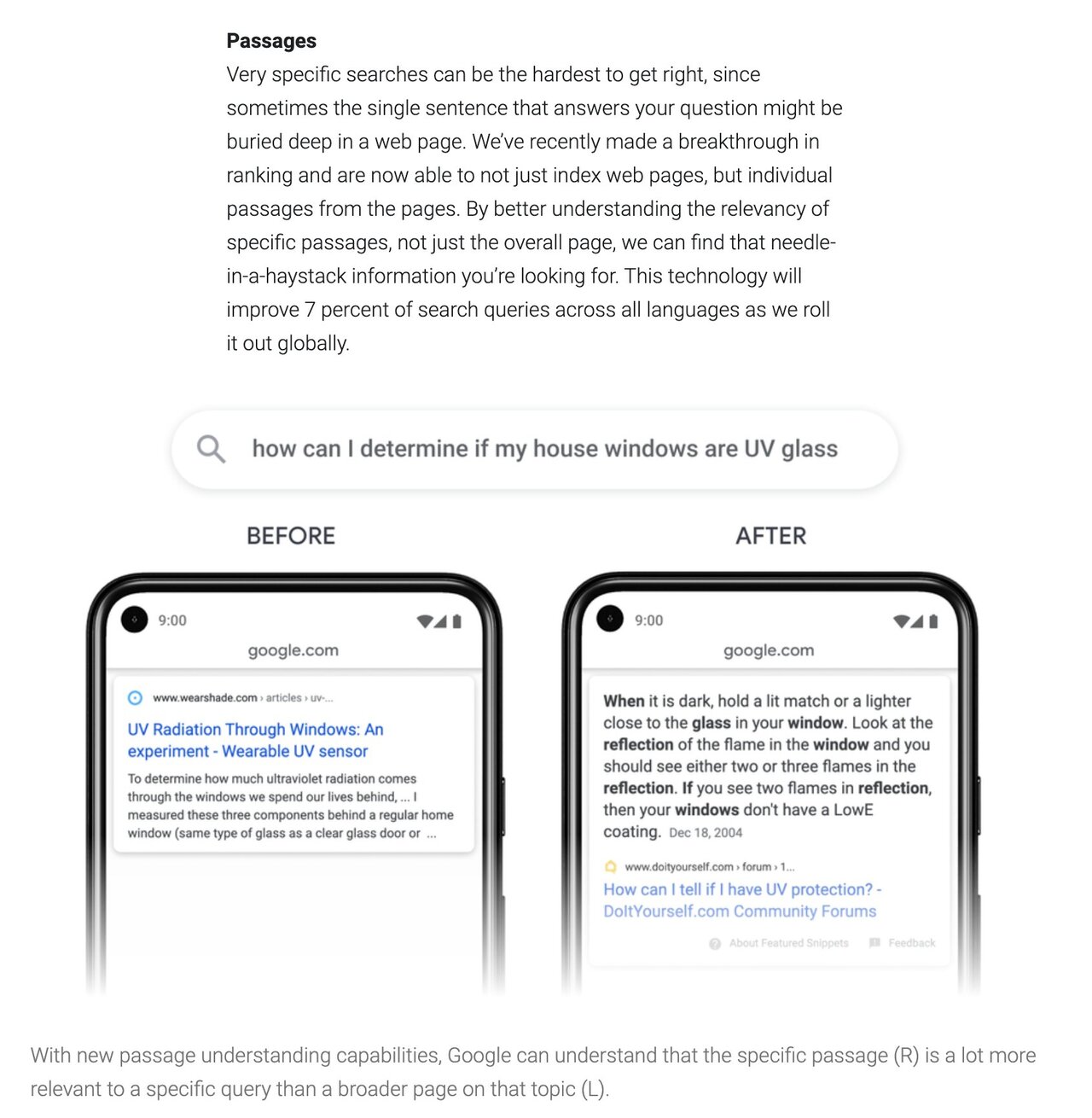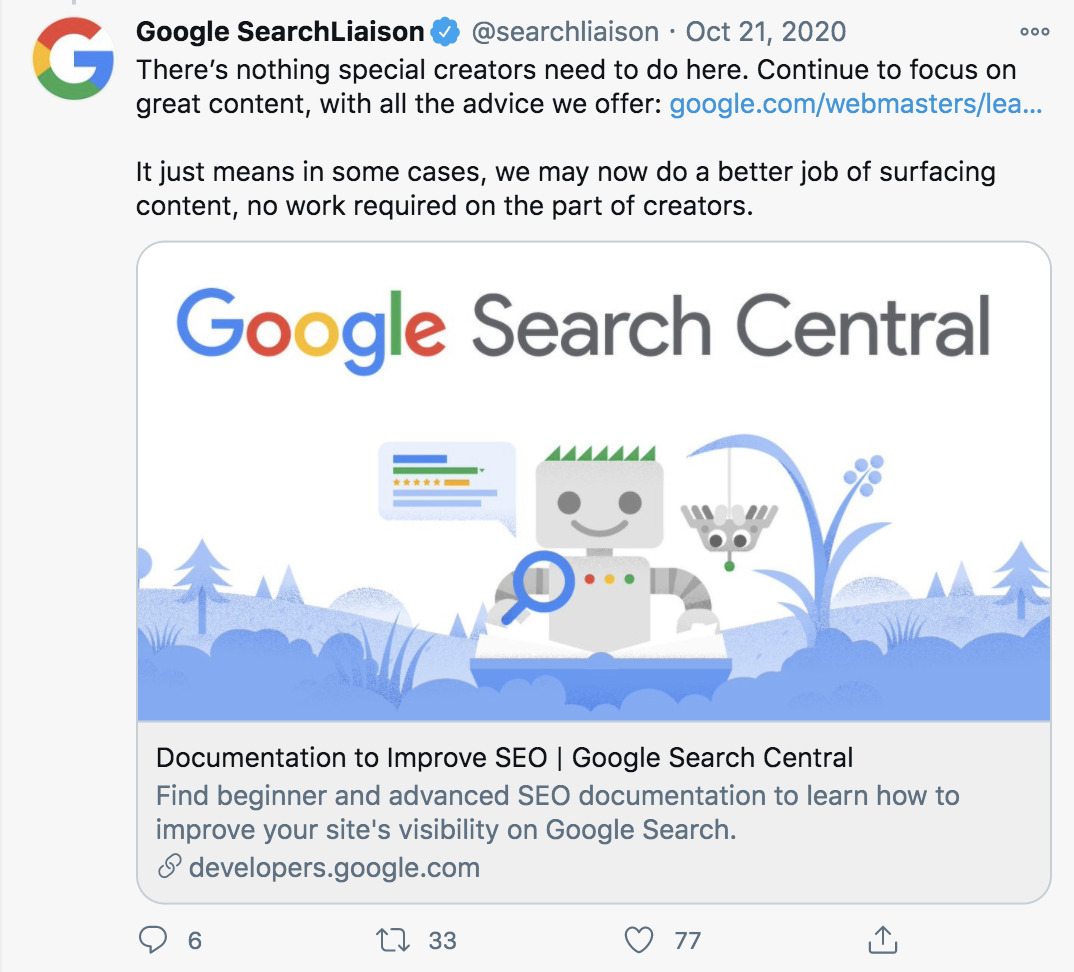What We Know About Google’s Passage Indexing
Google’s Passage Indexing was announced in the event Search On 2020 last October. With the announcement came a rush of inquiries and clarifications from SEO specialists and other digital marketing professionals.
Will Google really be indexing particular passages? What is the difference between passage indexing and featured snippets? And most importantly, when will it be rolled out?
In the succeeding months, employees from Google were met with these questions across various forums, websites, and social media apps. To help you get a better grasp of Passage Indexing before it gets rolled out, here are the essential pieces of information that you need to know.
It can give more accurate results to specific queries

Passage Indexing was announced at the Search On 2020 event by Cathy Edwards, the Vice President of Engineering at Google. Besides indexing web pages, images, videos, places, and more, she announced that Google has had another breakthrough — the ability to index passages.
In the video, she mentions that this change is meant to aid in the improvement of specific searches. What does this mean? It means that instead of looking at a page as a whole to determine what it’s about, the search engine can now better understand the meanings behind individual passages.
Once rolled out, this will provide searchers with more accurate results for specific queries. So if the answer to a certain query is found on a web page about a broader topic, Passage Indexing can still spot it.
It does not index individual passages
One of the misconceptions that came with the announcement of Passage Indexing is that it can index individual passages, which was what was announced in the Search On 2020 event. This was disproven by Danny Sullivan, Google’s public Search Liaison in a series of posts and replies on Twitter.

It seems that instead of indexing passages, Google has improved its algorithm’s ability to understand specific passages from already indexed pages. This is an interesting change as the search engine was previously known to crawl through an entire page to learn about it.
It is a ranking change
Instead of a change in indexing, a search developer advocate for Google named Martin Splitt called Passage Indexing a “ranking change.” In his video discussion with the Search Engine Journal, Martin also referred to this update as “Passage Ranking”.

In the video, he discusses how Passage Indexing can change the way that Google ranks your content based on what it finds on your page. Instead of having to make multiple articles about different topics, a subtopic found in a longer and broader web page can now be used as a factor to help improve its rankings for a particular query. To further elaborate, a number of employees from Google describe the change as “helping find a needle in a haystack.”
It is different from featured snippets
So what is the difference between Passage Indexing and featured snippets? According to Martin Splitt, featured snippets are self-contained pieces of information on a page that can be pulled out and showcased in the search result. In terms of Passage Indexing, the goal is not to simply answer a question. Instead, it focuses more on ranking broader pages that you may be interested in. This can refer to pages with more elaborate passages or pages that may contain results that are not as concise as those usually found in featured snippets.

To help you further understand, let’s talk about a hypothetical situation. Let’s say that you have a page about camping gear. Within that page, you have a subtopic that talks about how to safely store portable gas cans. Prior to Passage Indexing, your article may not rank for the query “How to safely store portable gas cans when camping”. Google may put its focus on your page being about essential camping gear. With Passage Indexing, it’s possible that Google will be able to rank your page for that specific query since it is relevant to what is being asked.
How to prepare for the launch of passage indexing
In October 2020, Google announced that Passage Indexing would be unveiled by the end of the year and that it will affect 7% of queries across all languages. However, at the time of writing, it has yet to go live. So, you may be thinking that you still have some time to prepare for its launch.
How can you prepare for Passage Indexing? According to both Danny Sullivan and Martin Splitt, you do not have to change a thing. According to Splitt, Passage Indexing is more aimed at those who are not that knowledgeable about SEO. As for Sullivan, his piece of advice is to keep making pages with relevant content, which is ultimately what the search engines are looking for.
The same thoughts were shared by the Google Search Liaison Twitter page, who encouraged people to focus on making good content based on their advice on Google Search documentation.

Since the change has yet to go live, meaning that we cannot start experimenting with it, it seems that the best course of action is to review your pages to ensure that your content is relevant to its targeted search intent.
Key takeaway
These are just some of the pieces of information that we know about Google’s Passage Indexing so far. Once it is rolled out, it will be a breakthrough that can provide more accurate results for 7% of queries across all languages. It will do so by understanding specific passages from previously indexed pages better, providing searchers with more relevant pages in the search results.
Take note that there have been no announcements regarding how SEO Specialists and other digital marketing professionals can prepare their websites for Passage Indexing. Instead, focus on making your content as relevant as possible.
